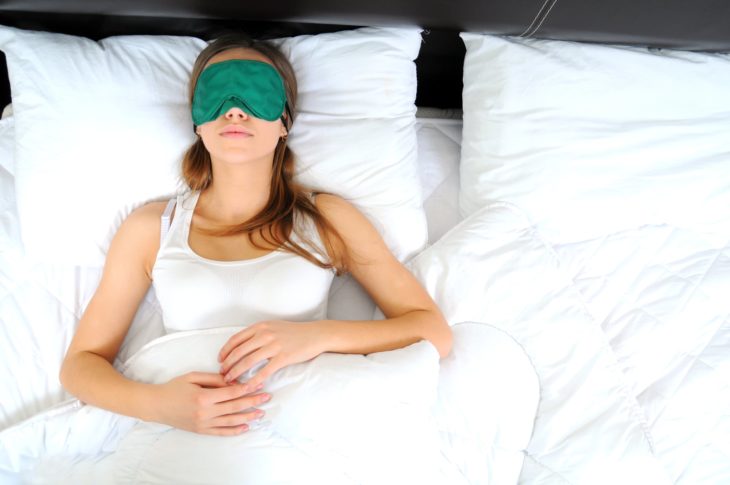Sleep may seem like a waste of time. After all, you spend anywhere from 5 to 10 hours a night doing nothing.
While it may seem that way from a physical standpoint, there are a lot of things going on in your body as you sleep. The thing is, you can’t see them.
That’s because they’re happening chemically. These changes allow your body to recover and repair itself as you slumber. It is why you go to bed tired and wake up fully refreshed in the morning.
Below, we discuss some surprising benefits of sleep, a few of which you probably didn’t know about.
Contents
1. Sleep Helps You Lose Weight
Sleep and weight may seem like two unrelated things. But the reality is, they’re very much interlinked.
Sleep affects your ability to lose or gain weight. This is why sleeping less than 7 hours a night can sabotage your weight loss efforts. Research shows that dieters who were sleep deprived only lost half the weight compared to those who got enough sleep while on the same diet.

Img source: floridatoday.com
In addition to slowing the rate at which you lose weight, lack of sleep also increases your appetite. Sleep deprivation makes you feel tired. To help you stay awake, your body looks for an alternative source of energy. Often that comes in the form of food.
This is why you tend to eat more when you don’t get enough rest.
Another reason you feel hungrier when you’re sleep deprived is that your hormones go out of whack. Leptin and ghrelin are two hormones that affect your appetite.
When you’re not sleeping enough, the levels of leptin your body produces decreases. This makes your stomach feel empty.
Additionally, your body produces more ghrelin, which increases your hunger while causing your metabolism to slow down. As a result, you not only crave food, your body is also more likely to store fat instead of burn calories.
2. It Boosts Your Learning and Memory
Remember those all-nighters in college when you were cramming for an exam or trying to memorize something for your presentation?
It turns out that staying up all night isn’t always the best thing to do.
Research suggests that getting enough sleep is important if you want to learn something. It is also essential if you want to remember what you’ve just learned.
There are 2 reasons for this.
- One, it’s hard to focus and stay awake when you’re tired or sleep deprived.
- Second, sleep lets your brain consolidate everything you’ve studied, read and watched. This process not only improves memory it also helps you understand what you’ve learned better.
When trying to learn or memorize something, we often go through 3 stages.
- Acquisition. This is when you consume the information. It can be in the form of a book, video or audio. Anything that lets you grab hold of new information.
- Consolidation. Once you have gotten the information, it’s time for your brain to process it. Here, it tries to make sense of what you’ve learned. This is why it’s always easier to remember things when you understand them. In contrast, things you just memorize word per word can be easily forgotten.
- Recall is when you’ve memorized the information and can access it anytime you need to. Once you’ve understood and got it into memory, you can recall that information at a later time to help you with something if the need arises.
Getting enough sleep lets you do all these things. It lets you focus on the material, then allows your brain to consolidate what you’ve consumed so you can use that information in the future.

img source: drweil.com
As a result, it’s important to get your 7 to 8 hours of sleep every night if you want to learn a new skill, build long-term memories or improve your ability to focus.
3. People Who Get Enough Sleep Live Longer
Another thing you may not know is that getting enough sleep helps you live longer. Scientists came up with this theory a while back. But, the problem was how to prove it was true.
To do so, a study brought together 21,000 twins and followed their progress for 22 years. Having twins was important because it was the only way to tell if certain actions or behaviors can affect a person’s lifespan.
Since the participants were all twins, it meant their genes and traits were alike, or at least very similar to one another. Also, most of the twins grew up in the same environment, which made them carry the same behaviors.
What researchers found were participants who slept less than 7 hours a night had a 17-24% chance of dying earlier than their twin. They also observed that those who used medication to help themselves fall asleep had a 33% higher risk of death.
In contrast, the best results came with participants who slept between 7 to 8 hours a night.
So why does sleep affect the longevity?
The answer lies in sleep deprivation and its negative health effects. Not getting enough sleep causes a host of health issues in the long term. This includes heart disease, high blood pressure, diabetes, obesity, and depression. All of which increase your risk of mortality.
4. Sleep Makes You More Creative
Ever wondered why you sometimes wake up and have an “a-ha” moment?
This often happens when you go to bed with a dilemma or when you can’t solve a problem. By the time you wake up, the answer seems to have “magically” come to you.
Well, it’s not magic.
It’s your brain and what sleep does to it.
Sleep helps you be more creative as it inspires you to come up with new ideas. This is thanks to your brain’s neuroplasticity.
Neuroplasticity is our brain’s ability to adjust and re-wire itself. This is why we’re able to learn new things. Neuroplasticity also allows our brains to develop from childhood to adulthood.

Img source: argyllfreepress.com
What makes this feature unique is it lets your brain make new connections based on the information you see and gather. It is these new connections where your creative ideas come from.
In addition to neuroplasticity, sleep also helps create new insights by allowing you to view things from different perspectives. This allows you to come up with creative ideas and “out of the box” solutions to problems.
At the core of this boost in creativity is REM sleep. REM or Rapid Eye Movement is a stage in your sleep cycle where your eyes move rapidly from side to side while they’re closed. It is also during REM sleep when your dreams occur.
During this time, your brain can connect unrelated ideas and recognize patterns from the information you’ve acquired to form new ones. Both of these features help you become more creative.
5. It Helps with Athletic Performance
Elite athletes sleep a lot. That’s because it helps them perform better.
Most top professional athletes get between 8 to 10 hours of sleep each night. That’s compared to the nearly 7 hours of sleep the average person gets nightly.
Here are just a few examples of how much sleep professional athletes get daily.
- Lebron James: 12 hours
- Maria Sharapova: 8-10 hours
- Roger Federer: 11-12 hours
- Usain Bolt: 8-10 hours
- Venus Williams: 8-10 hours
- Rafael Nadal: 8-9 hours
- Steve Nash: 10 hours
In addition, you’ll often find them napping.
NBA players are well-known for taking mid-afternoon naps. This helps them wake up more alert and energized for their evening games.
Meanwhile, European soccer powerhouse Real Madrid also halts training at 1 p.m. to give way to a 2-hour siesta before resuming their regular training.
So why do they spend so much time sleeping?
That’s because sleep allows them to perform better on the court or the pitch. It produces a host of physical and mental benefits that give them an advantage over their competition.
These are just a few of the many benefits of getting enough sleep for athletic performance.
- It improves your reaction time
- Better accuracy
- Less fatigue
- Better decision making
- Run and move faster
- Be stronger and lift more weight
All of these attributes are important for athletes, especially professionals since their livelihood depends on how they perform
In contrast, not getting enough sleep causes them to move slower, have a lower metabolism and exert more effort to get the same amount of work done.

Img source: popsugar.com
6. You’ll Be Happier
While sleep can’t make you laugh or solve all your problems, it does make you a happier person. You’ve probably noticed that you wake up crankier when you don’t get a good night’s rest. While it may feel like a coincidence, there’s actually a reason why you wake up a feeling that way.
Researchers at Harvard Medical School note that sleep affects your mood. Not getting enough shuteye makes you feel exhausted, stressed and frustrated. As a result, you’re more prone to mood swings.
If you stay sleep deprived, things are likely to get worse. You’ll start feeling anxious and may experience depression as well.
When this happens, it’s hard to feel happy. Here’s why.
Studies show that happiness is often based on a few things. These include:
- Being healthy. When you feel well, you’re happier. The opposite is true when you’re sick. This is why patients with chronic illnesses often attend support groups to help them cope.
- Good relationships, being loved and appreciated. We all like being loved and appreciated. Having friends, family, and loved ones make us part of a community. It’s also important to enjoy things in life whether it’s your hobbies, passions, and Finally, knowing that you’re appreciated boosts your self-esteem. Altogether, these things make you a happier person.
- Having overall satisfaction. Being satisfied and content is the key to happiness. Whether it’s your job, money, relationships or anything else. In contrast, not having what you want or feeling discontented makes you unhappy.
- Feeling good physically, emotionally and mentally. Being in a positive state of mind and feeling good physically lets you do the things you want to do. You’re not hindered by anything. This lets you live the way you want to and enjoy the things life has to offer.
- Having good social and financial well-being. Financial problems quickly drown your happiness. And because we all know the value of money in the world we live in, everyone feels good when you earn a lot of money. And, thanks to social media, people today have also become very concerned with their social status.
Final Thoughts
So, the next time you think about wanting to go to bed later or skimp on sleep, think about what its effects are to your health. Sleep is an important part of life. This is why we spend about 30 to 40% of our lives asleep.
